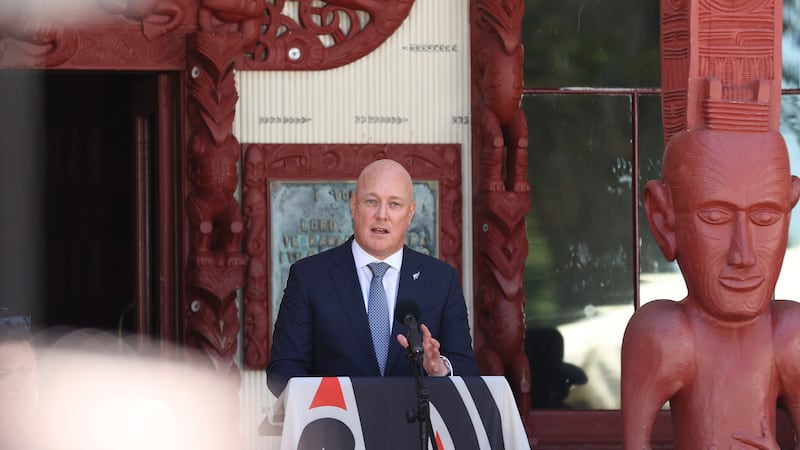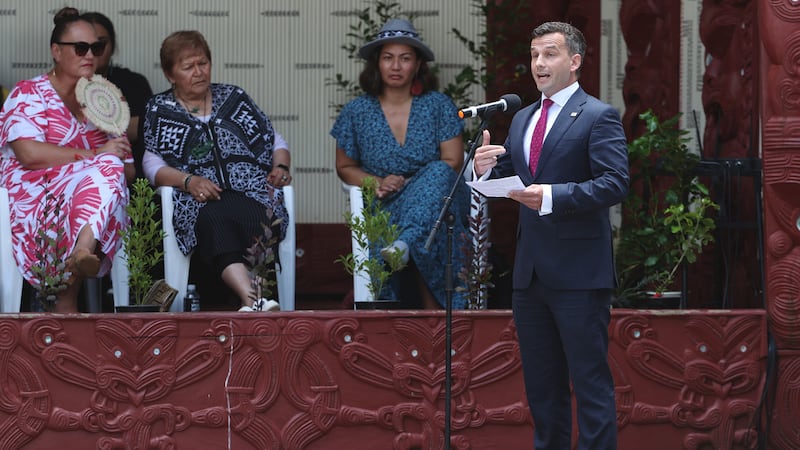The question of whether Māori ceded sovereignty has once again exploded into the national consciousness, with Prime Minister Christopher Luxon challenged at the 18th anniversary of the koroneihana of Kīngi Tūheitia at Tūrangawaewae Marae.
Green Party co-leader Chloe Swarbrick quizzed the prime minister on whether he believed Māori had, by way of the Treaty of Waitangi, ceded their sovereignty to Queen Victoria?
Swarbrick said at Tūrangawaewae, “I know it’s not question time but I think this is something that I would love your reflection upon, is whether you believe, as the leader of this country, Māori ceded sovereignty?”
While he remained tight-lipped at Tūrangawaewae, Swarbrick doubled down on her questions to Luxon while in Parliament.
There, the prime minister did confirm that, according to the position of the Crown, Māori did, in fact, cede sovereignty.

Te Ao Māori News talked to leading academic Professor Margaret Mutu, who has particular expertise in the history of Te Tiriti o Waitangi.
Mutu has a bachelor of science in mathematics, a masters of philosophy in Māori studies, and a PhD in Māori studies from the University of Auckland, specialising in linguistics.
She has spent a lifetime advocating, arguing and litigating Te Tiriti o Waitangi for her iwi in the north.
Mutu said the Prime Minister was just plain wrong.
“Christopher Luxon is just wrong. It’s really quite simple.”
So what’s the confusion?
Did Māori really cede sovereignty?
Well, it depends on who you ask and which version of the Treaty/Te Tiriti you subscribe to.
In article one of Te Tiriti o Waitangi, it says, te Kāwanatanga katoa, while over in the English version, the same phrase is translated as all the rights and powers of sovereignty.
So, is kāwanatanga an apt translation for the word sovereignty?
Mutu says the word ‘kāwanatanga’, which is a literal translation of the word ‘governorship’, has no real meaning.
“The word kāwanatanga had really exercised the minds of a lot of academics because we couldn’t work out what it actually meant.”
“The question we had to ask ourselves was, what was it that rangatira, especially at Waitangi, what was it that they actually said to the Queen, ‘yes, you can have this?’”
In her estimation, the more complete word for sovereignty in te reo Māori would be mana.
“Mana and rangatiratanga are the closest thing you can get to sovereignty but they are not the same thing.”
“Mana is something we derive from the gods. It’s ultimate and paramount power and authority.”
“It is actually far greater than sovereignty.”
Why isn’t the word mana in Te Tiriti o Waitangi?
The missionary Henry Williams, and his son, Edward, are credited with the translating of the Treaty of Waitangi into Te Tiriti o Waitangi.
Mutu said she believed the word mana was in earlier drafts of Te Tiriti.
“From my understanding, it was. The first draft that Williams did, did contain the word mana.”
“But he knew that if the rangatira were being asked to tuku i te mana ki te Kuini o Ingārangi (cede their mana to the Queen), they would probably dispatch him to the hāngī.”
Revisionist history and the Treaty Principles Bill
ACT, under leader David Seymour, is on a crusade to reinterpret the words of the Treaty in a modern context, a context that is inclusive of all people and cultures in Aotearoa, New Zealand.
On the website www.treaty.nz it says, “The intention of the Treaty Principles Bill is to establish in law that the principles of the Treaty are what the three articles of the Treaty actually say: that the New Zealand government has the right to govern; that the authority and ownership of land and property of all New Zealanders is protected; and that all New Zealanders are equal under the law.”

In a Facebook post, Act Party leader David Seymour called for open dialogue on the Treaty.
“We need a national conversation about our founding document.”
“Are there two classes of New Zealanders in partnership, each with different rights? Or are we a modern democracy where all citizens have equal rights? I look forward to having that discussion over the next several months.”
“My fundamental question is this: Where are the successful societies that treat people differently based on their ancestry? Many of the worst events in history came from treating humans based on their membership of a group,” Seymour wrote.
Mutu said it was ironic that Seymour sought to reinterpret the Treaty, given that she and other Māori academics had been accused of revising New Zealand’s history.
She said Seymour and ACT wanted to uphold the English version of the Treaty while also reinterpreting it.
“What we have with Seymour is they want to go back to the white supremacist ‘Māori ceded sovereignty’.”
“But they are out on a limb with all the evidence that’s been before the Waitangi Tribunal.”



